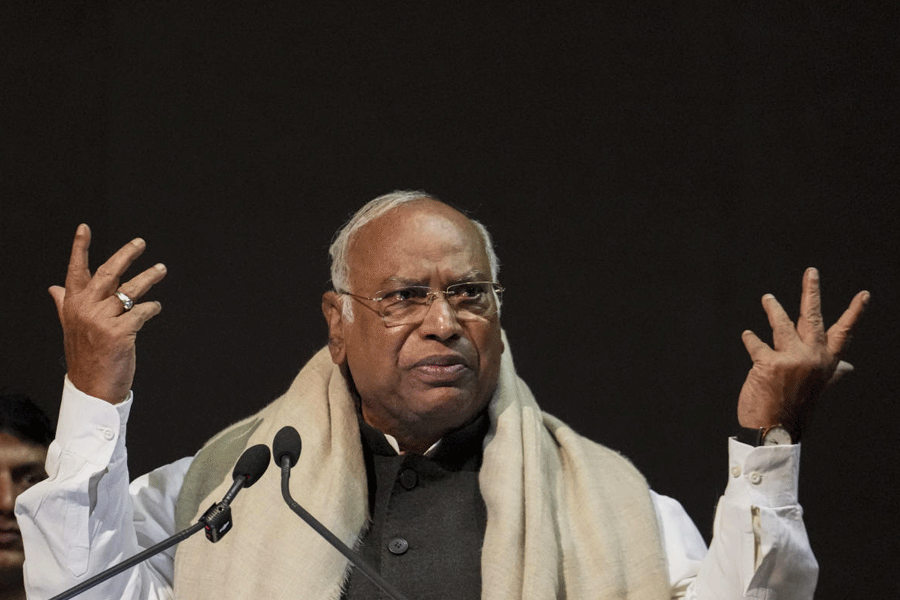They don’t rush to work every morning and yet they don’t belong to the retired set. They are not looking out for new job opportunities for they have not left their jobs either. They are the lucky ones who are taking a break, with the blessings of their office. In office jargon, they have gone for a “sabbatical”, a long break from work, may be even over two years.
A break from the daily grind had been sanctioned early. “Sabbatical” is derived from the Biblical “Sabbath” — a day of religious observance and abstinence from work, traditionally maintained on Sunday. But new-age employees want more. And are getting more. India is warming up to the idea of sabbaticals, which have been a trend for some time abroad.
Several Indian companies now offer sabbaticals to their long-serving employees, many of whom are jumping at the opportunity to upgrade their skills or go for that long-desired round-the-world family trip. “Since we came up with a sabbatical policy two years ago, we have offered the option to a large number of employees who have spent 10 years or more with the company. There have been quite a few takers,” says Anand Awasthi, HR manager with a Mumbai-based consultancy firm that offers software solutions to overseas companies.
Gargi Dasgupta, 32, employed with the HR department of a strategic outsourcing company in Bangalore has opted for two sabbaticals herself. She agrees with Awasthi. “The employer-employee relationship being much better than ever before, employers are extremely receptive to the needs and problems of their employees. In Bangalore, many companies, including the one I work for, are coming up with sabbatical policies customised to suit the needs of every employee — from giving a female worker a sabbatical after childbirth to offering a break of a year or more to someone who wants to give time and attention to his personal life and family,” says Gargi.
It comes as no surprise, then, that many companies are now perceiving sabbaticals as a “flex benefit” — using them as recruiting and retention perks and also giving employees the creative space and respite that they need to balance work and play. Tata Consultancy Services gives its employees not one, but two sabbaticals after 10 years of service and with at least a gap of five years between each.
HR heads have increasingly come to believe that companies that offer sabbaticals have a better chance of retaining talent. For sabbaticals foster employee loyalty. “After the sabbatical, an employee’s productivity often increases. Also many companies send their workers on a sabbatical to study so that the knowledge will benefit the company once the employee rejoins,” says Debankur Majumder, HR manager of a multiplex chain. Publishing, technology, advertising and consulting companies are said to be the most sabbatical-friendly organisations.
Break benefits
But what does one do with such a long break?
Arijit Biswas, HR head (eastern region) for Tata Consultancy Services, is on a year-long sabbatical from August and is loving every moment of it. For he is doing something he has always wanted to do — far removed from his professional life. “I was in the middle of a role change and when my company suggested that I go on a sabbatical, I opted for it without batting an eyelid. Not having to get up in the morning and rush to work, not having to stress myself out thinking about a presentation or an impending appraisal has not only relaxed me, but has also enabled me to re-examine my priorities in life and work towards them. Most importantly, it has helped me to get in touch with myself,” smiles Arijit. He has used his sabbatical to pursue a long-standing passion — directing a Bengali feature film which is set for a 2008 release.
Ajay Sengupta, 42, banker, is on a year-long-sabbatical to pursue sports commentary! For Ranjan Majumder, 40, a senior consultant with TCS, a year-long sabbatical has afforded the opportunity to work with an NGO. “I don’t feel that I am on a sabbatical because I am working full time here too. I am enjoying it,” laughs Majumder.
If you thought that, like VRS, sabbaticals were confined to the 40-plus, think again. The young, some in their 20s, need a break too. Udai Singh Pawar, employed with Microsoft’s research wing, is opting for a year-long sabbatical next month to backpack across South America and Europe. Udai is 26. “I have worked a couple of years and one day I realised that life is just passing me by. It is then that I decided to give up working for a while and fulfil my passion for travelling,” says the Bangalore-based Udai. And though it is common for women employees to go on a sabbatical following childbirth, Seema Sirohi-Vij has opted to take a break from her career as a publisher just to see her children grow up. “I did not want to miss out on my children’s growing up years. A career can always wait,” smiles Seema.
Parul Singh, 35, software developer, is taking a six-month sabbatical travelling the world.
It is now becoming common for students here too to opt for a “gap-year”. They are not getting penalised for it by the Indian system, which is losing some of its rigidity. Ankur Dasgupta (name changed), now studying mass communication, opted for a gap-year after Class XII. “I was trying my luck in acting in Mumbai for a year. I couldn’t have pursued that as well as studies simultaneously. So it made sense for me to postpone going to college by a year,” says Ankur.
Sabbaticals come with their share of problems. With a long time spent away from office and colleagues, those opting for a sabbatical may have readjustment problems after getting back. “The work environment is extremely dynamic and changes every day. So it may take a little more time for an employee just back from a sabbatical to get back to the routine again,” concedes Biswas of TCS. Agrees Pawar: “Life changes when you move from school to college and from college to a job. Likewise things change in your office environment when you are away for such a long time,” he says.
But sabbaticals are now everywhere! Actor Aamir Khan took a four-year sabbatical between Dil Chahta Hai and Mangal Pandey. And the latest trend among Mumbai’s swish set is periods of abstinence from partying — called “soiree sabbaticals”!
Would you like to take a sabbatical? Tell t2@abpmail.com











